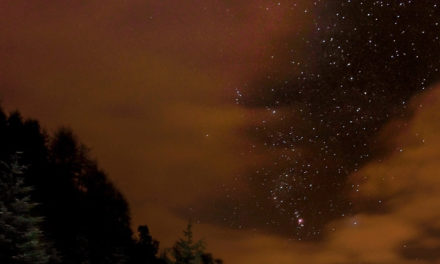I Need You Need Me
Tena tātou katoa e te iwi mīhana… (Greetings to all the people in mission),
This month’s whakataukī (proverb) is: “Ka ora pea i a koe, ka ora koe i au.” (I will survive because of you and you will survive because of me). Although, ora (as in kia ora) has a depth of meaning that is rich and little understood. It is translated above as ‘survive’, but the “Amplified Version” might read as, I survive/thrive/have life/wellbeing because of you and you survive/thrive/have life/wellbeing because of me. I fear we’re starting to lose this sense of life-giving interdependency as the world spirals rapidly into new forms of tribalism. It’s all very well and good to suggest that we bring each other life and wellbeing when we are like each other, it is quite another thing to think like that when we differ. That is, to accept that our life is dependent on those outside of our ‘tribe’.
The primary effect of Jesus’ death and resurrection—releasing a supernatural power to enable reconciliation.
When Paul observes in Ephesians 2:14 that Jesus has broken down the walls of hostility between differing factions (Jews and Gentiles fairly represent any differing groups), he is speaking of the primary effect of Jesus’ death and resurrection—releasing a supernatural power to enable reconciliation (a shorthand for shalom/harmony/peace). This aspect of deliverance or emancipation from hostility is easily eclipsed in an era where the gospel is portrayed as little more than personal hell-avoidance, the Holy Spirit is a personal development coach, and corporate worship is a salve for our souls rather than a realignment to God’s right ways.
We have a thin understanding of the gospel if we do not see what it confronts us with: making a new people from those who have long standing animosity between each other. The example in the New Testament (Jews vs Gentiles) is just that, an example. We lose the importance of what Paul is saying about the gospel if we limit the ‘wall of hostility’ to just those two groups. No, the wall of hostility exists in myriad ways between all manner of groups and even within groups. It is core to sin-influenced human nature. We exist in a ‘natural’ state of hostility towards others because of this thing called sin.
The Genesis 3 event unlocked our “will to knowledge” (the knowledge of good and evil by which we judge others).
I have come to the conclusion that the Genesis 3 event unlocked our “will to knowledge” (the knowledge of good and evil by which we judge others). Whether that in itself is sin (quite possible, for judging usurps what is God’s alone to do) or if a malevolent force called sin manipulates this unlocked ability, I’m not sure. What I do firmly believe is that judgement is the problem. That is, our personal capacity to independently determine that something is wrong or right. In the garden, humanity gave up its dependence on God as the sole arbiter of morality and ethics. What humans call morality and ethics now are by and large cultural constructs, based on the interpretation of common law, or at best (or sometimes worst), biblical law, by the powerful and privileged. Jesus acknowledged, and the Apostles agreed, that a fickle and flawed imposition of interpreted law was not healthy for humanity. It too easily oppresses those who do not fit the cultural mould.
Any solely human attempt at harmony is doomed to fail.
We are seeing the grand post-WWII neo-liberal globalisation project unravel before our very eyes. The humanitarian optimism, rooted as it is in progressive capitalism is proving incapable of holding difference together. The romantics will argue that this is just a speed bump on the road to progress, but the reality spoken of in the Bible tells us that any solely human attempt at harmony is doomed to fail, history will always repeat. “My peace I give to you” Jesus said, “not as the world gives” (John 14:27). What is impossible for humanity is possible for God (Luke 18:27), and Jesus’ sacrifice is what made supernatural peace possible. But only in-Him do we find it.
In-Christ, differences come together because of a supernatural renewal, a Holy Spirit enabling to lay aside our judgements about others. The epistles are full of this appeal, look for it and you’ll never look at the New Testament the same way again. Take up your cross, living sacrifices, attitude of Christ, you are a new creation, love one another, we are a body, fruit of the Spirit… on and on the images are of a harmonized unit. Not a homogenised unity, mind. Neither is it an idealised unity. It is one forged from creative tension. As I shared in my presentation to the WEA Mission Commission Online Conference, harmony doesn’t come from resolving tensions but from holding tensions, tuning them. The Apostle James (James 1:2-4 in the context of the whole epistle) tells us that it’s sitting in the trials, testings and temptations (tensions) with one another and persevering in the faith (by perpetually reconciling relationships) that we reach full maturity in-Christ. Only together and in-Christ can we fully thrive/survive/live.
Right now Russian & Ukraine are at war. While there are historic differences, they share common blood and heritage. Whereas, in Aotearoa New Zealand the bi-cultural debate continues to rage between quite different bloodlines and heritage. Equilibrium may be struck for a while, but revolution inevitably erupts as judgements drive wedges between people of difference. As followers of Jesus we are called to live a different way—and this is our participation in the mission of God: to live as witnesses to Christ’s Kingdom reality. We need new theological lenses. Weaker on short sighted judgementalism, and stronger on long-suffering-sightedness, tuning tensions toward shalom as we #stayonmission.
Arohanui ki a koutou e haere ana ki te ao (love to you all as you go into the world),
Jay






